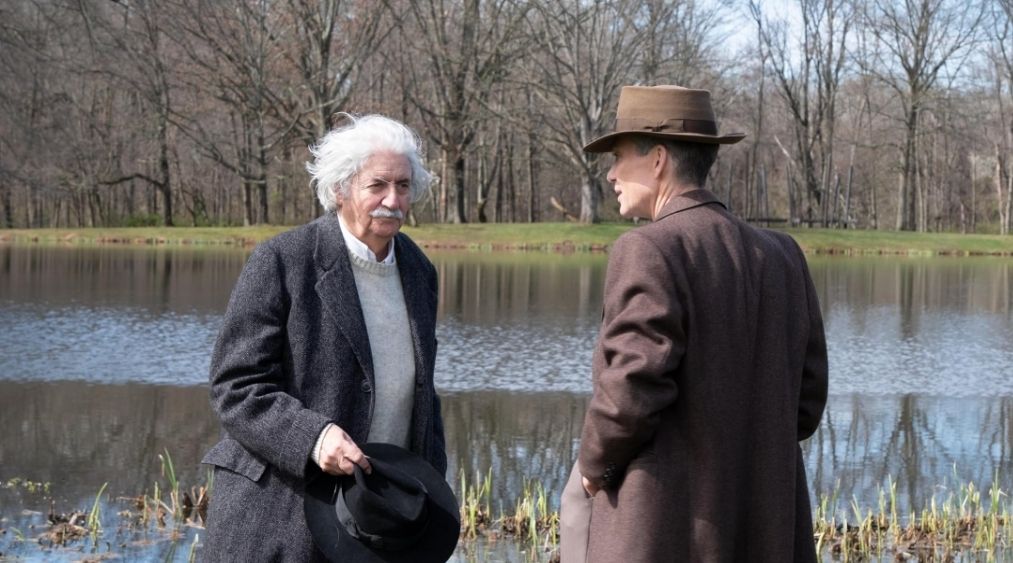We all joke about Jewish guilt, but it’s a real thing. It’s not just jokes about our mothers telling us they aren’t mad, only disappointed. It’s thousands of years of assigning self-blame to the countless atrocities committed against us. Whenever throughout history, Jewish people have been victims of atrocities, from the Holocaust in modernity to the Roman occupation of Jerusalem and destruction of the Second Temple in 70 CE, to the biblical enslavement of the Israelites in Egypt, sages, scholars, and laypeople of the Jewish community have blamed themselves.
We have long sought reasons to say it was our own fault these terrible things happened to us. Over the millennium, we’ve built entire aspects of our religion around this trauma-induced self-flagellation, with everything from daily prayers to High Holy Days shaped around pleading to God, to each other, and to ourselves for forgiveness for every imaginable thing we perceive ourselves to have done wrong. We have even constructed our religious laws with the express purpose of preventing ourselves from potentially breaking other laws.
Christopher Nolan’s Oppenheimer is a movie squarely about Jewish guilt. The movie goes far out of its way to annunciate the Jewishness of many of its characters, especially J. Robert Oppenheimer (Cillian Murphey) himself and his rival, Lewis Strauss. Oppenheimer contains some complicated Jewish politics about loyalty and power, despite Nolan, Murphey, and Downey Jr. not being Jewish themselves. But two key moments in the movie illustrate how Jewish guilt is at the very core of the film nonetheless.
The first is a conversation where Oppenheimer explains why he is confident the U.S. will build its nuclear bomb before Germany. He explains it is because Hitler believes theoretical physics to be “Jewish Science.” As such, Oppenheimer believes Hitler’s antisemitism will prevent the program from being fully resourced and thereby fail. Even the Germans’ most important non-Jewish scientist on the project, Werner Heisenberg, was accused of being a “white Jew” by the German propaganda machine simply for his involvement in the project.

The second evidence of Jewish guilt in the film is Oppenheimer’s response to being asked repeatedly why the bomb project is so important despite the enormous risks to the personnel, the devastation it would rain upon innocents, and the precedent it could set for warfare in the future. He finally breaks and explains that if the person asking the question’s people were the ones being herded into concentration camps and being murdered by the millions, he wouldn’t be asking the question in the first place.
By all accounts in the movie, Oppenheimer is the epitome of a New York Jew of his age. He might not oblige himself to traditional religious practice, but like many of the young, secular Jews of his time, he has a deeply instilled sense of obligation to seek justice. This is expressed through participation in left-wing, borderline Communist labor and political organizing. He also has ample personal ties to Jews across Europe, despite being born in the U.S., and expresses immediate kingship with every other Jew he comes across in the film.
Clearly, Oppenheimer’s Jewishness is essential to his character, even if the movie itself limits the explicit text on his relationship to his identity. With this lens, we can clearly understand that every moment in the film where the camera shakes, the lights go bright, and the world starts to melt around Oppenheimer is a manifestation of his Jewish guilt. When he sees people melting before his eyes at the victory rally, that’s his Jewish guilt. When he barges in on President Truman to offer timid regret for having unleashed the bomb on the world, that’s his Jewish guilt. When he has a vision of Jean Tatlock (Florence Pugh) during a hearing, that’s his Jewish guilt, too.
Perhaps just as integral as guilt is to understanding the collective Jewish consciousness is the notion of being okay with being of two minds at once. We even have a term for this: machloket l’Shem shamayim – arguments for the sake of heaven. It’s essentially a long-held traditional way of learning, thinking, and problem-solving that requires us to respond to questions with more questions and multiple perspectives rather than consensus. It’s why the old adage about ‘two Jews, three opinions’ is more than just a joke. Our traditional texts are littered with contradictory accounts of stories and opposing rulings on everything, including religious laws themselves. So, the fact that Oppenheimer never fully concedes that developing and using the atomic bomb was a mistake is not incongruous with his Jewish guilt.

The work of the whole Manhattan Project was built on the Jewish science of Albert Einstein and was enriched by the Jewish science of his friends and colleagues the world over. Who can blame him, or any of them, for wanting to use their scientific powers to save, or at least avenge, their people in mortal peril once again? At the least, Oppenheimer’s Jewish moral compass would implore him to prevent the Nazis from doing the same to the rest of the world should they win the war. But his Jewish guilt can also explain his stark opposition to the Hydrogen bomb’s development. Even if he has one mind to use Jewish science to destroy his enemies, his Jewish guilt still gives him another mind to prevent the use of such a weapon ever again.
Oppenheimer’s legacy is deeply complicated. There’s a Jewish teaching that one should walk around carrying one note in either pocket. One should read, “I am but dust and ashes.” The other should say, “For my sake, the world was created.” It is intrinsic to our Jewish peoplehood that we are beings fraught with contradictions. Oppenheimer epitomizes the duality of mind Oppenheimer had to live with. He is but a cog in the grand machine that created the worst weapon imaginable, yet he felt a singular obligation to save the world as he knew it. Even as he made his choices, Oppenheimer, as depicted in Nolan’s film, never relinquished any of his guilt for what he did and didn’t do.







